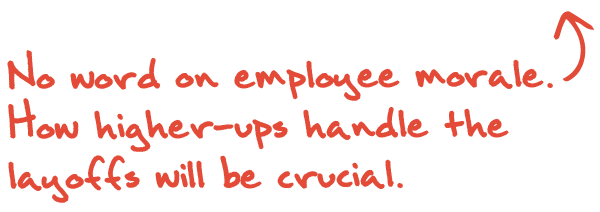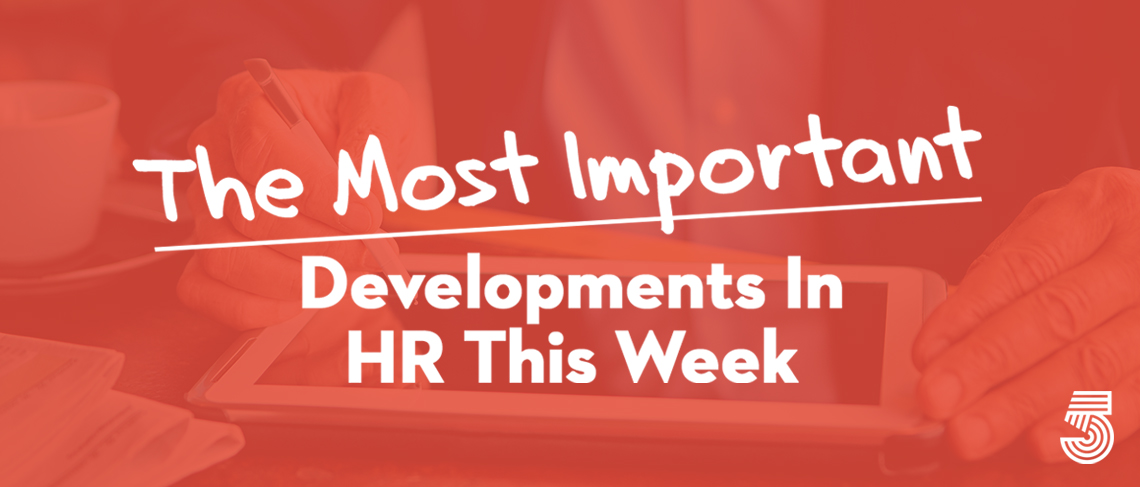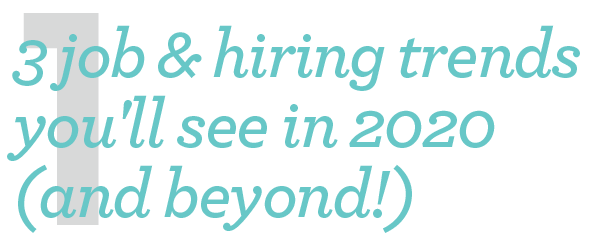
Glassdoor recently released its new report, Glassdoor’s Job & Hiring Trends for 2020, in which their chief economist, Dr. Andrew Chamberlain, offers his list of recruiting and HR predictions based on his years of studying the labor market combined with Glassdoor’s enormous data repository. Chamberlain predicts that a great corporate culture isn’t a nice-to-have anymore, it’s a must if you want to recruit and retain top talent. He also says employers will begin to brace for a potential recession based on the current inverted yield curve (aka every banker’s nightmare), which is historically the harbinger of economic doom. What that means for HR is developing recession-proof hiring strategies that include shoring up your employer brand and prepping for a flood of unqualified, unemployed applicants. If you’re thinking about using AI for hiring, now might be the time to get that in place before the recession hits. He also predicts that more candidates will embrace the mobile job search, so if your application process isn’t fully mobile-friendly, it’s time to update that, too. Read the full report here. Glassdoor
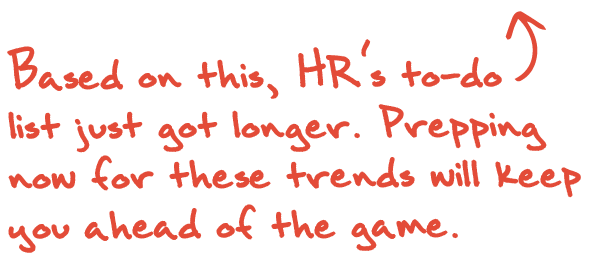
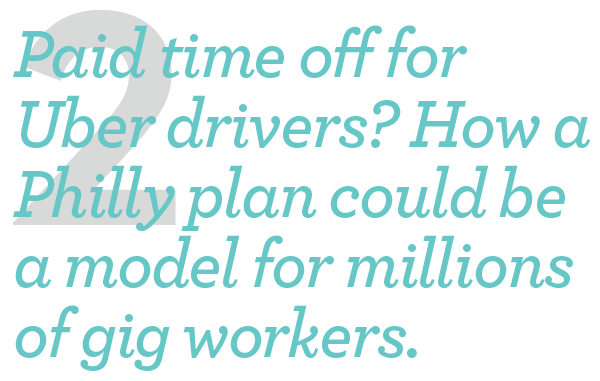
Maria Del Carmen Diaz works full time, often pulling 60-hour weeks cleaning houses across Philadelphia for more than two dozen families. Still, she doesn’t get paid time off — or health care or retirement benefits — through her employers. That’s about to change, at least in Philadelphia. The city’s Domestic Worker Bill of Rights, unanimously passed by the City Council on Oct. 31 and expected to be signed into law, will launch a “portable benefits” system for domestic workers such as Diaz. In principle, experts say, the idea of tying benefits to the worker instead of the employer could be adapted to help tens of thousands of Philadelphians working for multiple employers. And what happens here could be a model for millions of American workers without adequate access to benefits because they are subcontractors or juggling multiple part-time jobs or driving for Uber to supplement their income — nontraditional work arrangements that have become increasingly common and prominent. The first portable benefits system for paid time off in the country comes at a time when the “future of work” is getting increasing attention, from Silicon Valley employers to think tanks. The Philadelphia Inquirer
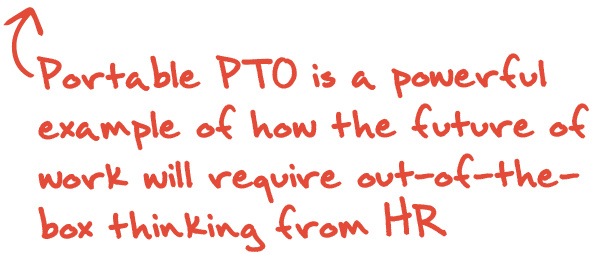
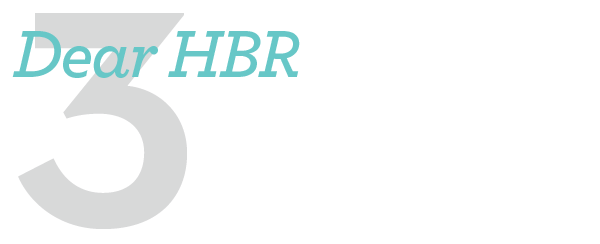
We came upon a great HR podcast this week from Harvard Business Review: “Dear HBR.” It’s like Dear Abby (Who else remembers reading her column in the newspaper every morning?) but deals with questions about workplace dilemmas. Hosted by HBR senior editors Alison Beard and Dan McGinn, the half-hour (give or take) podcast also features an expert for each episode. The latest, “Motivating Employees,” features Richard Boyatzis, a management prof at Case Western Reserve University and coauthor of the book “Helping People Change: Coaching with Compassion for Lifelong Learning and Growth.” They talk through some sticky HR situations including what to do when a colleague wants the status of a prominent role but doesn’t want to do the work, employees are leaving the company at a high rate, or your slacker (er, subordinate) resists doing additional work. They also provide a reading list if you want to dive deeper into the topics. If you have a workplace dilemma you’d like Dan and Alison to tackle for you, email them at [email protected]. Who knows? Your HR problem could be solved by HBR. HBR
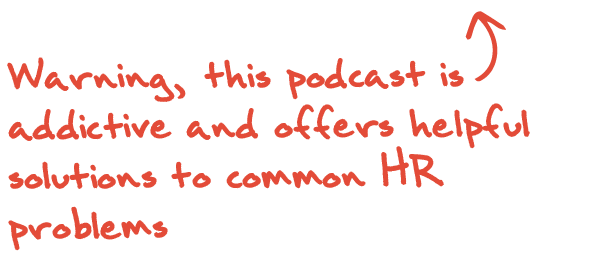
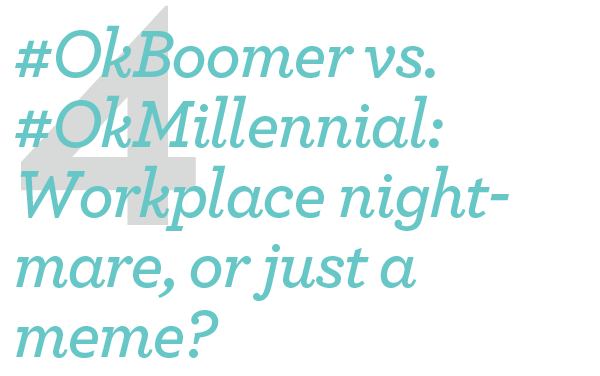
The “#OkBoomer” phrase that’s suddenly everywhere is meant to convey a fundamental disconnect between younger generations and baby boomers who cling to outdated, off-base ideas. The cross-generational insults have ratcheted up in recent weeks, also inspiring a backlash. Last week, AARP, the group most identified with boomers, weighed in. That did not go well. These warring posts — and the social commentary around them — suggest a yawning gap between the old and young. They speak to different attitudes about social and political change, and they raise questions about how deep those differences go. That’s not surprising. Outside of family, the workplace is where generations interact the most. Now, for the first time in history, the workforce spans five generations. Work is also where many social issues play out, presenting the potential for generational debate over everything from gender-neutral bathrooms to the #MeToo movement. But not everyone agrees that “OK, boomer” speaks to deep, underlying tensions. “I have to tell you, I was a little surprised by it, because we have a lot of research that shows how much workers actually like to work together no matter the generation,” says Susan Weinstock, a boomer herself and a vice president at AARP. So it might be that “OK, boomer” is just another example of how social media sows a sense of discord — the way it has in politics. NPR
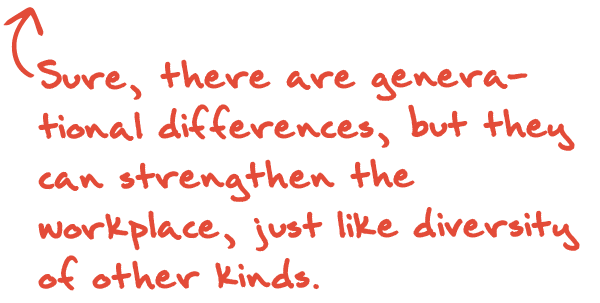
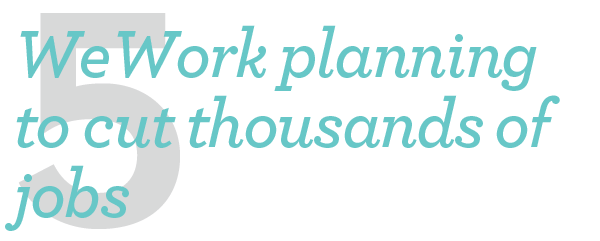
WeWork could lay off thousands of employees as the company tries to recover from a disastrous attempt to go public. About 4,000 employees could leave WeWork through a combination of layoffs, divestitures of the company’s ancillary businesses, or through transfers to a contractor. That means WeWork could lose about a third of the 12,500-person head count it had in June. WeWork Executive Chairman Marcelo Claure told employees that layoffs would begin this week. Claure said the layoffs would be “difficult” but necessary to create a “more efficient, more focused, and even more customer-centric organization.” WeWork’s spectacular combustion has become a cautionary tale in a summer of underwhelming IPOs, particularly when it comes to job creation and employee wealth. The plans to go public disintegrated after investors questioned the company’s valuation as well as the leadership of former CEO Adam Neumann. Neumann stepped down as CEO in September. WeWork was “probably hiring a little ahead of itself,” said D.A. Davidson analyst Barry Oxford. The Washington Post
